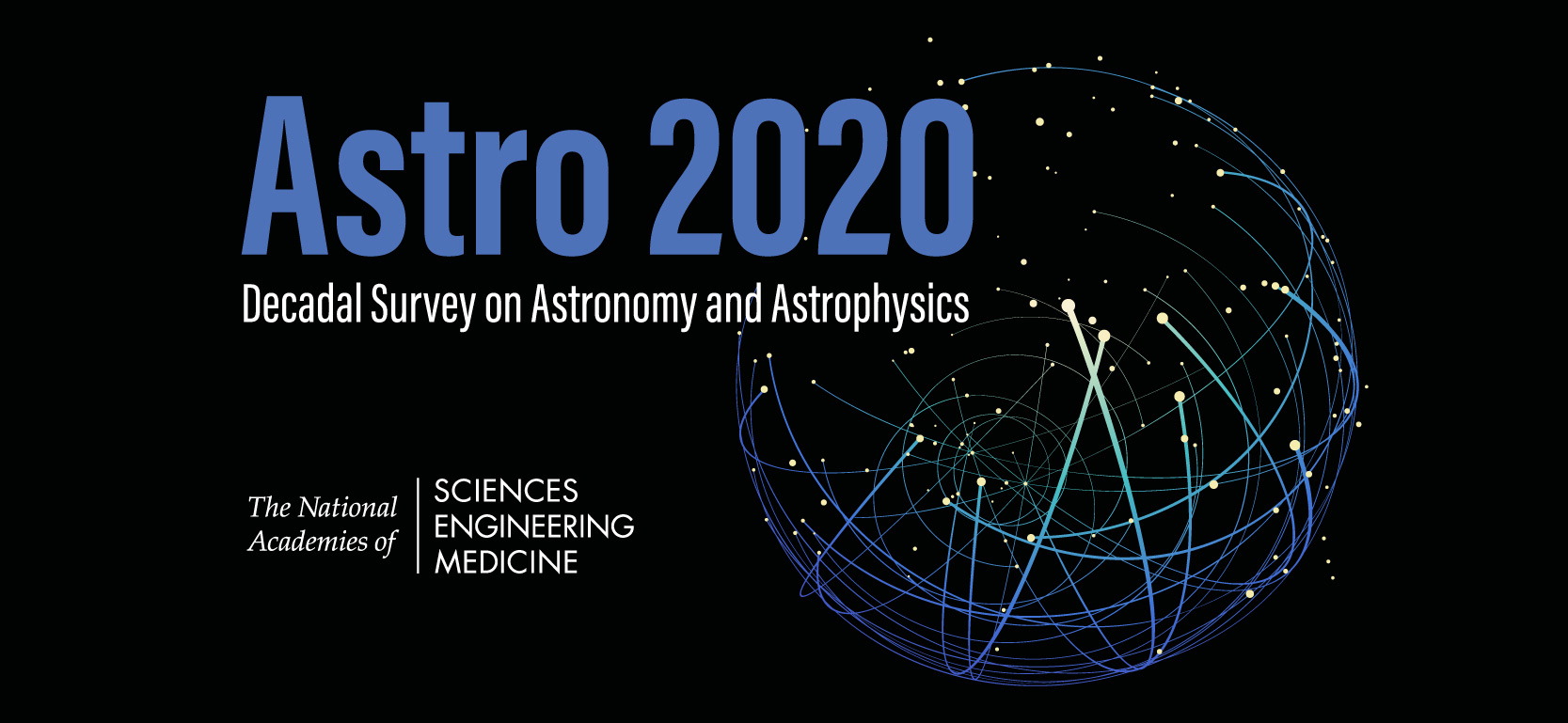Submit Panel, Committee Nominations, and Science White Papers to Astro2020 - FINAL POST-SHUTDOWN UPDATE
Ashlee Wilkins
This post is a reminder and update to the message from the Astro2020 chairs, sent in an email on 20 December 2018. Below, please find more information on the approaching deadlines to nominate potential committee and panel members and submit science white papers to the next Decadal Survey in Astronomy and Astrophysics (Astro2020).
This post contains some information that was shared at the town hall held at the AAS 233 meeting on 9 January. Slides from that meeting are available now, and a recording of the town hall will be posted publicly soon. You can also read Alexandra Witze's coverage of the town hall for Nature here.
Committee and Panel Nominations
Nominations — including self-nominations — for Astro2020 committee and panel membership are being accepted via this form through 22 January 2019. FINAL POST-SHUTDOWN UPDATE: The National Academies and co-chairs will continue to accept nominations until 5 February, due to the federal shutdown. They have, however, begun the committee formation process and considering nominations received thus far.
The survey will have a steering committee of 18 members (including the two co-chairs) responsible for overall activity of the decadal survey, final recommendations, and the final report. One of the co-chairs' emphases for the Astro2020 survey is the international context for astronomy and astrophysics, and thus invites nominations for international astronomers who could potentially serve on the committee.
The survey would additionally have a number of panels or subcommittees. The study panel structure is still being determined, but would likely include science, program, and state of the profession panels, and potentially cross-panel working groups as well.
The co-chairs have stated that the primary qualifications for nomination are scientific expertise, experience, and objectivity. Desirable qualifications include experience in project or organization management and committee experience. The co-chairs emphasized an interest in finding panel members with the ability to broadly and openly consider science and mission ideas for prioritization. Co-authoring a white paper (science or otherwise) does not disqualify a person from serving on the Astro2020 committee or panels. You cannot serve on a science or prioritization panel if you have major involvement or leadership in a project/mission being submitted for consideration, though such people may be appropriate for nomination for panels like those on state of the profession. Early career scientists are not precluded from nomination, but membership — particularly of the steering committee — may require the experience, broad expertise, and time commitment of people at the level of tenured faculty (or equivalent). Social science experts are welcomed as nominations to populate relevant panels (primarily state of the profession). The co-chairs strongly emphasized looking for diversity along a multitude of axes when assembling the panels.
Science White Papers
FINAL POST-SHUTDOWN UPDATE: The Science White Paper deadline is now 5:00pm Eastern, Monday, 11 March 2019. Instructions for developing and submitting science white papers can be found through the Astro2020 website.
Two templates are provided on this page, one in Microsoft Word and one in LaTeX. Submissions are not required to use the template files, but should contain the same structure and cover page information.
AAS Journals and the National Academies have partnered to offer white paper authors the option to publish (for free!) their submissions in the newly-returned Bulletin of the American Astronomical Society (BAAS), allowing it to be indexed by ADS and archived for the long term. When you submit science white papers, you will be given the option to allow the National Academies to pass your submission on to AAS Journals for BAAS publication.
The AAS also would strongly encourage you to include co-author names and contact information, and to be responsive to requests you receive for demographic information in the follow-up to your white paper submission. The information will be used to understand the pool of people and institutions submitting information to the survey. For example, it could be compared to results from the current and past surveys performed by the AAS Demographics Committee to gauge how representative of the community the white paper (co-)author submission pool is.
White papers for all other topics — like policy, state of the profession, technology, missions, et cetera — will be due on a single secondary deadline, to be announced soon (co-chairs tentatively mentioned May 2019).


